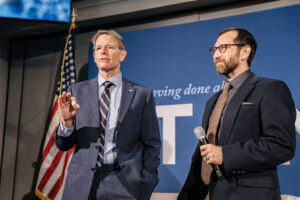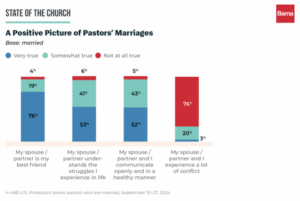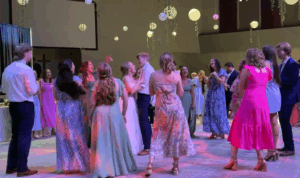
WASHINGTON (BP)–The U.S. House of Representatives reaffirmed its support for a school choice program in the District of Columbia by the narrowest of margins Sept. 9.
The House endorsed a pilot voucher plan for low-income families for the second time in less than a week by voting 209-208 for an amendment to the D.C. appropriations bill. Representatives had voted 205-203 for the same amendment Sept. 5, but opponents called for a revote, as is their privilege, when the House returned to business four days later.
The House later approved the appropriations bill in a 210-206 vote.
If enacted, the voucher measure will provide a scholarship of as much as $7,500 per student to be used at any D.C. private school, secular or religious.
Foes of the program criticized the Republican leadership for holding the vote during a Democratic presidential debate in nearby Baltimore. Among members, and expected opponents of the amendment, at the debate were two of the presidential candidates, Reps. Richard Gephardt of Missouri and Dennis Kucinich of Ohio.
The GOP leadership also held the vote open long after the normal 15-minute limit in order to gain the final margin, according to reports in both The Washington Post and The Washington Times.
Only three Democrats joined with 206 Republicans in voting for the amendment the second time. Fifteen GOP members and an independent voted with 192 Democrats in opposing it.
The Senate Appropriations Committee approved a similar amendment to its version of the D.C. appropriations bill Sept. 4, but the full Senate has yet to hold a floor vote on the measure.
It has been estimated the voucher plan could assist from 1,300 to 2,000 D.C. students.
President Bush strongly supports the voucher plan, as do D.C. Mayor Anthony Williams and D.C. school board President Peggy Cafritz. Criticism of the district’s public schools is common, and recent tests showed D.C. ranked below every state in basic skills in the fourth and eighth grades.
Public school and teachers organizations, as well as some civil liberties and church-state groups, lead the opposition to vouchers.
In friend-of-the-court briefs, the Southern Baptist Ethics & Religious Liberty Commission has supported the inclusion of religious schools in education choice programs, saying the government cannot discriminate against religion when it decides to offer a benefit that can be used at other private institutions.
The U.S. Supreme Court upheld last year a school choice program in Cleveland, Ohio, that permitted the use of vouchers at religious schools. The high court ruled the program was “entirely neutral with respect to religion” and did not offend the First Amendment ban on government establishment of religion.
–30–













